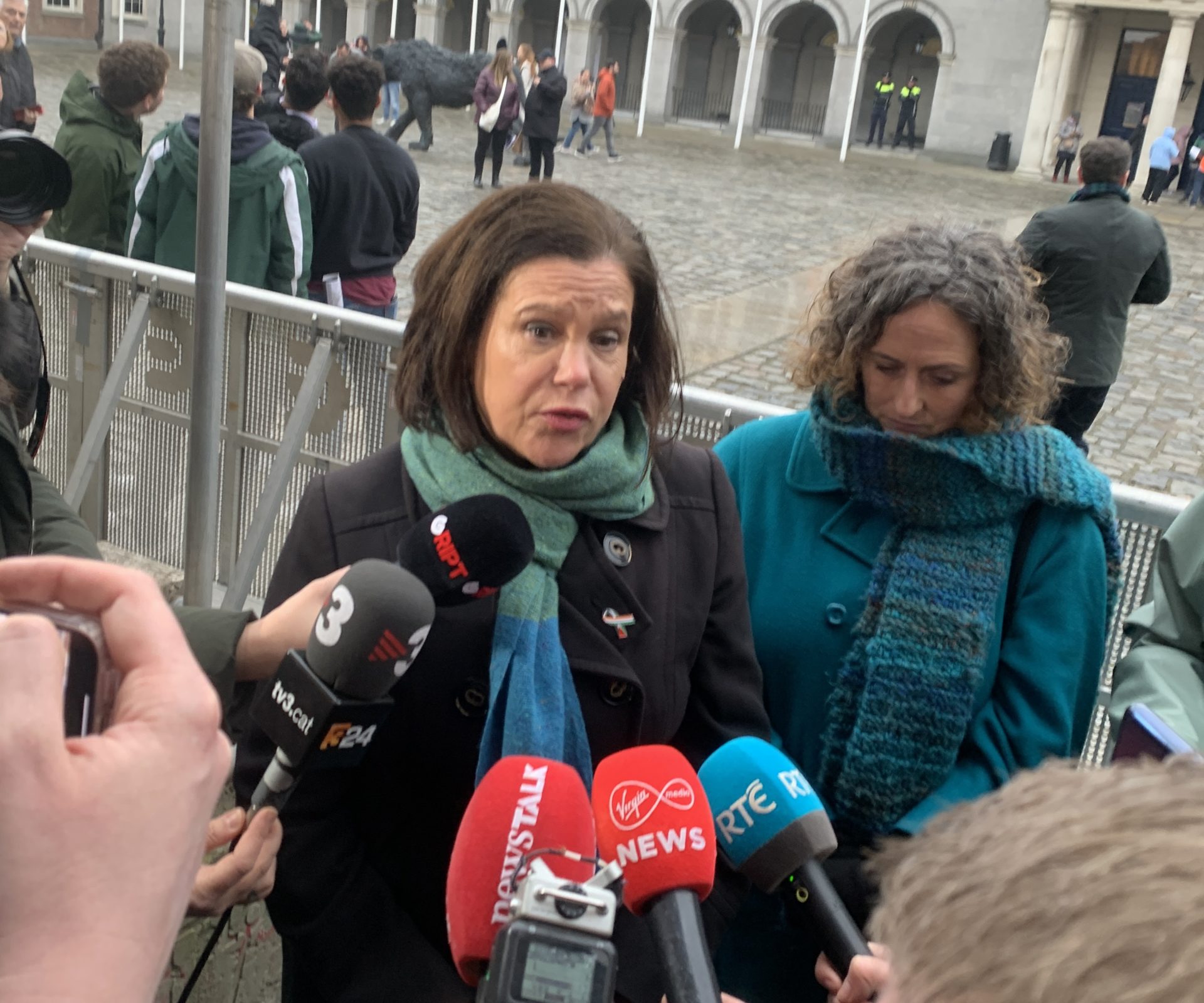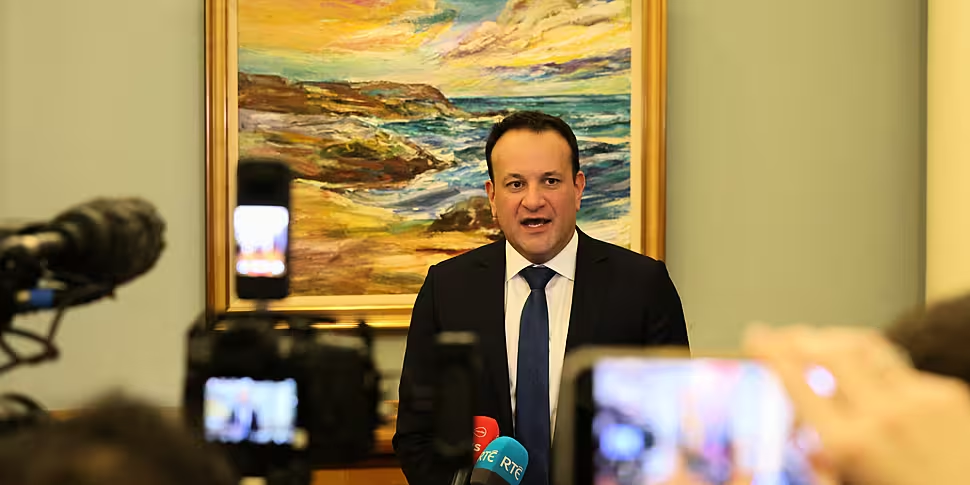The huge ‘No’ votes in the care and family referendums show that the ‘entire political class is out of step with a huge chunk of the electorate’.
That is according to Gript editor John McGuirk who told Newstalk Breakfast this morning that the Government, the opposition and ‘State-funded NGOs’ like the National Women’s Council have “huge questions to ask themselves” this morning.
Friday’s referendum on the care amendment saw the highest ever ‘No’ vote in Irish history, with nearly three-in-four people rejecting it.
The family amendment was also roundly rejected, with more than two-in-three people voting ‘No’.
 Counting in the Family and Care Referendums at Dublin's RDS, 9-3-24. Image: Leah Farrell/© RollingNews.ie
Counting in the Family and Care Referendums at Dublin's RDS, 9-3-24. Image: Leah Farrell/© RollingNews.ieMr McGuirk told Newstalk the defeat was ‘literally unprecedented’.
“I did have a sense in the last couple of days - I think a lot of people did - that it might be drifting against the Government, but not on this scale,” he said.
“This is a this is a literally unprecedented defeat.
“I think when they're defeated on that scale, it's no longer simply about the proposal on the table. It's no longer simply about what the public were being asked.
“I think the bigger question we have to ask ourselves is whether there now exists a fundamental disconnect between the political class - by which I mean the political parties and the State-funded NGO's etc - and the public who they purport to represent.”
"Out of touch"
He said political parties and NGOs now must ask themselves if they are in touch with the priorities of the public.
“The sense I took away from talking to people in in the last couple of weeks and days of the referendum campaign was not so much confusion about what the referendum was about as confusion about why this was even being held at all,” he said.
“People I was talking to who would have voted ‘Yes’ in in previous referendums were saying to me, ‘Look the country has a housing crisis,’ it has, some people perceive, a law and order crisis, other people perceive, issues around immigration – and the Government here is talking about removing mothers from the home or fiddling around with putting something about care in the Constitution,” he continued.
 Sinn Féin leader Mary Lou McDonald at Dublin's RDS during the count of the Family and Care Referendums, 9-3-24. Image: Newstalk/Andrew Lowth
Sinn Féin leader Mary Lou McDonald at Dublin's RDS during the count of the Family and Care Referendums, 9-3-24. Image: Newstalk/Andrew LowthMr McGuirk said the result is also very damaging for opposition parties.
“I think Sinn Féin have fundamental questions to ask themselves,” he said.
“One of the things, anecdotally and this is only an anecdote, it’s not data, but repeatedly, the idea that Sinn Féin were going to run the referendums again with different wording if the result didn't go the Government’s way, did not go down well with voters.
“I think if you look at the 90% ‘No’ votes in places like Ballyfermot for example which would be very strong Sinn Féin areas, I think they have fundamental questions to ask themselves as a political party about how well they are representing the people who voted for them at the last election and who they're relying on to vote for them at the next election.
“So it's not just the Government. I think the entire political class has got to wake up this morning, come to terms with the fact that it's out of step with a huge chunk of the electorate.”
"Fundamental questions"
Mr McGuirk said the National Women's Council also has “fundamental questions to ask itself” this morning.
“This is an organisation that receives €900,000 a year minimum from the Irish taxpayer and purports to represent Irish women and represent their interests and the position it adopted has just been rejected by, according to the Sunday Independent, between 75% and 77% of Irish Women Voters.
“I think there are fundamental questions about whether these organisations that purport to represent huge sections of Irish society actually represent them in any way.”
He said the people welcoming the vote as an outright rejection of ‘woke politics’ are being “a little bit optimistic”.
Despite that he said he believes the result could see the Government putting policies like the proposed heat speech and assisted dying bills “on the backburner”.









